
How to communicate with your boss about a slip he made?
Communicate with your boss about the mistake he had made with all frankness and honesty to build loyalty in the bond of employer and employee.
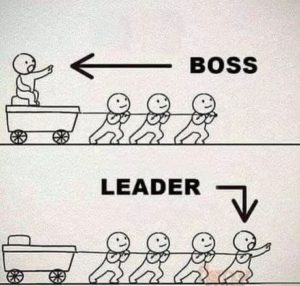
When you figure out that a mistake from your employer is going to create a problem for your organisation, a client, or another department, it is appropriate for you to speak up to him. However, Communicate with your boss, they made an error can be tricky.
The last thing you wish to do is to embarrass them or come off as either being insubordinate or a know-it-all. It means the best approach for addressing a manager’s mistake is to take a light touch. You don’t want to spoil your relationship and put your job in jeopardy. So, ensure to consider the right angle before approaching your boss. Seven simple rules given below can help you approach your boss and convince him.
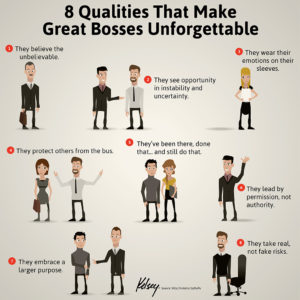
How to Communicate with your boss that he made a mistake?
- Do your research
Gather more information to make your point. Write your thoughts out first and double-check all the facts. Remember that managers often have more up-to-date or comprehensive information at their disposal. So make sure that an error has actually been made before speaking up to him.
- Pick your battles
Consider whether the correction is worth potentially crossing swords over or not. Ask yourself: Will it make your employer look stupid or out of touch? Will it prove harmful to a client or the organisation? If it’s a minor error (e.g. a small detail they’ve misquoted) it’s the best to let it slide.
Approach your boss, politely. Start on a positive note, gently explain your concerns. Together, the two of you can work towards a solution that will benefit your company.
- Consider your motive
Are you rocking the boat just to become a contrarian, or are you overly nitpicky? Will bringing this matter to your boss’s attention really create positive change for your colleagues, clients, and the organization, or is it an extra gesture just to “set the facts straight?” If there isn’t any compelling reason to challenge your boss, don’t.
- Time your comments wisely
Picking the proper time to discuss matters with your employer is vital, especially if you require their full attention and anticipate having an awkward conversation. Avoid approaching your boss out of the blue. If they are preoccupied or busy with other matters, or in the middle of group discussions, there are fewer chances for them having a better reaction to the concern.
- Speak privately
Do not confront your boss in front of coworkers, clients, or in a public place where the potential can get overheard. It can embarrass them. Instead, schedule time for a private discussion and have a safe forum ready in which the discussion can be held.
- Make helpful suggestions
Never tell the employer they have “made a mistake” or are “wrong,” and don’t make demands or try to give instructions. Instead, politely comment helpful ideas, insights, and problem-solving suggestions that can guide them to arrive at similar conclusions, and offer like-minded ways for addressing the areas of concern. Rather than simply point out mistakes, provide smart ideas for implementing corrections. Your ultimate goal should be to spark constructive dialogue around any topic.
- Practice the art of acceptance
Employers won’t always agree with you, and you won’t ever be able to change their mind. If they decide it’s time to end the discussion and move on, you should accept their decision and move on gracefully.
Whatever the result of your discussions, if your issues were important enough that you chose to raise them with your employer, you may wish to document the concern, just to avoid any problems that can arise in future. But bosses are human, too: if you politely approach him with insights that they may have made a slip, and given a graceful opportunity to rectify it, they often will.
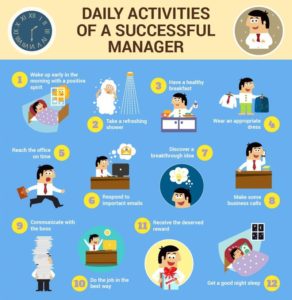
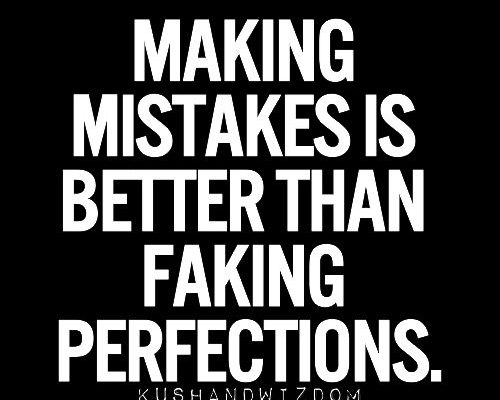
What should you do immediately after committing mistakes at the workplace?
Mistakes at the workplace is a common phenomenon in the workplace. The most common remedies are discussed here to rectify the Mistakes at the workplace quickly.

Everyone makes mistakes one or another day. In many situations, you can correct them or just forget about it and move on. But making a mistake at work is more dangerous as it can have a dire effect on your employer. It may risk a relationship with a customer, cause a legal problem, or put other employee’s health or safety at risk. Repercussions will eventually trickle down to you. Then, the option of correcting your mistake and moving on may not be there. When you make an error at work, your career may entirely depend on what you do next.
Here are the steps you can take:

What to do when you make mistakes at the workplace?
- Admit your mistakes
As soon as you realise that something went awry, tell your boss immediately. The only exemption is, if you make a trivial error that will not harm anyone or if you can fix it before it hurt anyone. Otherwise, don’t try to hide your slip. If you do that, you will end up looking a lot worse, and others could even blame you of a cover-up. Being upfront about it will display professionalism, a quality most employers greatly value.
- Suggest your employer a plan to correct the error
You should come up with an excellent plan to rectify your mistake and present it to your employer. Hopefully, you will be able to put plan something before you approach him, but don’t waste time if you can’t. Convince him that you are working on a solution.
Then, once you identify what you need to do, present it. Be very sharp about what you think you should do and what you anticipate the results to be. Tell your employer how long it will take to complete and about any associated costs. Ensure to have a “Plan B” ready, in case your boss shoots down “Plan A.” While making a slip is never a good thing, don’t miss the chance to demonstrate your skills for problem-solving.
- Don’t point fingers at anyone Else
There is a good possibility other people were also responsible for the error if it is a team-oriented environment. While people are usually thrilled to take credit for successes, they are hesitant to accept their own mistakes. If you can, take everyone to approach your boss together to inform him that something has gone awry.
Sadly, you might not make that happen as you may find some people who say “it’s not my fault.” It doesn’t mean you should point fingers at others, even if they do share responsibility for the error. In the end, probably, each person will be held liable for his or her own actions.
- Apologize, but don’t beat yourself up
There’s a tremendous difference between taking responsibility and beating yourself up. Admit your error but don’t berate yourself for making it, especially in public. If you keep calling attention to your mistake, that is what will stick in people’s minds.
You want your employer to focus on your progress after you made a mistake, not based on what happened in the first place. Be careful about tooting your own horn. Boasting about how you fixed things will not only call attention to your first mistake, it could foster suspicions that you have made a mistake so you could swoop in to save the day.
- If possible, correct the blunder on your own time
If you are exempt from receiving overtime pay, get to work early, stay late and spend your lunch break at your desk for as long as it takes to correct your mistake. It won’t be possible if you are a non-exempt employee since your employer will have to pay you overtime for each hour you work over 40 hours per week. You definitely don’t want to stir up more problem by causing him to violate that requirement. Otherwise, you should get permission from your boss if you have to work longer hours.


Never do this thing when you starting a new job
Starting a new job with a passion for the job is the best way to go an extended flourishing mission in the profession.

You got the job. Congrats!! You’ve finally secured a new job, and now you want to start off on the right foot, making a positive impression on your new boss and colleagues. There’s a lot of uncertainty that comes with a new job. You’ll encounter new people, a new environment and a new set of responsibilities. You want to be careful not to make any career-ending mistakes. So, what should you NEVER do when starting a new job? Here are a few things to avoid:

Things to avoid when you starting a new job
- Don’t show up late.
Showing up late on the first day or even in the first few weeks is guaranteed to make a negative impression. To ensure you’ll be on time, test drives the route to your new job before you start so you’ll know how long it takes to get there. Factor in extra time if there’s traffic, construction, or other reasons to expect a delay.
- Don’t dress unprofessionally.
Before starting your job, talk with the hiring manager or human resources professional to make sure you understand what constitutes acceptable attire for your new workplace. There’s nothing more embarrassing than showing up in a getup that doesn’t fly with your supervisors and making an unprofessional first impression.
- Don’t blow off orientation.
Many companies require new employees to go through an orientation or training process before starting a new position. While it may be tempting to skip these sessions or treat them lightly, don’t do it. Even if your training managers won’t be your direct supervisors, they are watching you. Avoid any behaviour that could prompt a training manager to report your behaviour back to your boss and team members.
- Don’t expect hand-holding.
No matter where you’re working, there are certain processes, tools, and forms that make up the standard operating procedures of your company. You may have been introduced to these through a very organized, systematic orientation, or you may feel like you’re expected to absorb them by osmosis. If you were formally informed consider yourself fortunate, If not, don’t feel frustrated. Instead, take initiative and master the basics on your own.
- Don’t ask co-workers to do your work.
It’s understandable that you may need help or guidance during your first few weeks at a new job, and asking co-workers for assistance or just to answer questions can be perfectly acceptable. But there’s no quicker way to make enemies than to ask or expect your new co-workers to do your job for you. Remember, you were hired because managers believed in your ability to get the job done. Ask for help if you need it, but believe in yourself and prove that you can do the work yourself.
- Don’t take too many personal calls.
The time you spend at work is for, well, work. Your employer isn’t paying you to chat with your girlfriend or even your kids’ babysitter. If friends or family members are prone to call you during working hours, remind them before you start the new job that you will now be working during certain hours and request that they avoid calling you during those hours. Make a personal policy of limiting personal phone calls and texts to your lunch break, except for during emergencies.
- Don’t ask for more money.
Most likely, you and your employer agreed to a certain salary during the hiring process. So don’t change your mind before you even show up at work. If you agreed to the salary offered, be satisfied with that. Don’t expect more money and don’t ask for more until you’ve worked long enough to prove your value to the employer.
- Don’t try to change things.
Of course, you want to make a good impression as soon as you arrive at a new job, and show your new employer they made the right choice in hiring you. However, be cautious of suggesting new policies or strategies during your first few weeks, as it may not be the best way to demonstrate you are a team player. Plus, it could prompt some of your new co-workers to think twice about you as the right person for the job. At first, take time to really understand and learn your job, then over time, you can make suggestions and changes as situations arise, and as your input and expertise are called upon.
- Don’t be dishonest.
In a new job, there will always be a learning curve, and effective supervisors understand that. Inevitably, you’ll be asked to do something or expected to know something that you don’t yet know or know how to do. Rather than saying you can complete the task on your own, be honest. Don’t be afraid to say, “I don’t know”, because honesty is a huge differentiator. Simply look people in the eye and say unabashedly and with confidence, “I don’t know. Let me find out and get back to you. Then do it.”
- Don’t be afraid to ask for help.
You may be so eager to start the new job that you don’t want to stop and ask questions. But by skipping even the most basic questions, you are setting yourself up for failure. Rather than making a mistake that could cost the company time and money, ask questions about everything you need to know, from what your job responsibilities are to who can help you with Internet or phone problems, to how you get paid and much more.
By following these tips, you’ll be on your way to keeping your job and impressing your boss and co-workers.

Do call us at # +91 7795547089 or mail us at team@bssrecruit.com for Starting a new job.

Why should leaders think out of the box?
Leaders think out of the box to predict and make a change to ensure that their organisation continues to achieve sustained success.

“The ordinary think inside of the box, the extraordinary think outside of the box, but genius thinks inside, outside, below and above the box.”
― Matshona Dhliwayo
One of the key roles of a leader is to anticipate and make a change to ensure that their organisation continues to achieve sustained success. They need to be able to innovate continually so that their organisation and they personally accomplish success. To unlock creativity and innovation, leaders need to think outside of the box. If we think outside the box, we can analyse a problem from a different angle and can find a solution. So what are the five key benefits of thinking out of the box? Scroll down and read the blog.

Five key benefits why leaders think out of the box
- Benefit 1: You generate more possibilities
Leaders think out of the box will spend time thinking about how to take the business ahead. They will keep on searching for how they can create something new or deliver an existing service differently. For example, look at how many organisations are now leveraging the capabilities of the internet to deliver their services. This brainstorming or considering options will create more possibilities, which in turn will create more solutions, actions and results.
- Benefit 2: Get out of your comfort zone
It is said that you cannot step into the next level by continuing to do what you always did. In other words, you should be ready to take chances. When you imagine out of the box, you will initially worry that you don’t know how to do something, don’t have the helpful resources, the time, etc. The successful leaders know that there is a solution to whatever problem or challenge they face, and it is merely a matter of discovering it. For finding the solutions, you need to get outside of your comfort zone. For example, some may get worried about how they will be observed if they ask for help. Leaders see this as part of their progress. If you want to get out of your comfort zone, try to view things from different perspectives.
“Being creative is all about activating your craziness for the good of others. It is all about thinking outside the box.”
― Olawale Daniel
- Benefit 3: You learn a lot
Every time you take effort, you get a result. It may not be the result you were anticipating, but you will surely get a result. If it is a successful result, you can keep looking for different ways to apply it to other situations. Even if you become unsuccessful or get a different outcome than you expected, you will learn a lot. Take that learning and practice it to help you become a better leader.
- Benefit 4: Focus only on the results
As a leader, you will get judged on the results you get. Even though there will be other variables that will contribute to your overall performance assessment, it is results that matter. When you start thinking out of the box, your focus will always be on delivering results and finding ways of achieving results more efficiently, more effectively and more economically than you currently do.
- Benefit 5: You inspire others
If you are a leader who thinks differently and encourages others to do the same, you will be certainly able to inspire and motivate others. Your team will start focusing on delivering results, become comfortable in taking risks, making mistakes and learning from them. They will become more creative and willing to get out of their comfort zone.
Thinking outside the box simply means that you are willing to consider different solutions and methods for reaching your desired outcome. With their ability to resolve problems through innovative thinking, creative leaders contribute to the success of an organisation. It is nevertheless essential that new ideas are well thought through and are backed up by good discussions. A little dose of courage, persistence and openness can convert a good leader into an excellent creative thinker.

“Think outside of the box. Work outside of the box. Dream outside of the box. Succeed outside of the box.”
― Matshona Dhliwayo
To hire the best of employees for your concern do call us at +91 7795547089 or mail us at team@bssrecruit.com.

Hiring a candidate from a different sector can help your businesses than an experienced candidate in the industry

Hiring a candidate or a perfect fit employee depends on a plethora of factors. Every recruiter tends to have a tick list of things to consider when recruiting employees. High on the list may contain relevant industry experience. While undoubtedly, this is significant for some roles. But sometimes we would argue that this can become restrictive when you probably miss out star candidates who can contribute highly to the success of your business. We know that it’s not your usual approach to recruiting the right employee, so why does it work? Scroll down to know further.
Industry Experience – The Recruitment Must-have
When you have a browse through any vacancy listings, one word, in particular, will stand out. And that is experience. The youngest recruits lament how to get it, and every career-driven individual focuses on obtaining it. Experience is the gold standard we often use to judge applicants on. It makes sense in many respects as it’s a crude measure of achievement. It reassures us that our new employee will be aware of what they are doing from the very first day.
However, when you become a crude measure of potential success, it can shut the door on potential. Here we are not talking about the potential someone will show if only they could get experience. No, we’re talking about the potential to add value from day one precisely because their experience isn’t from within the same niche. So how is this possible?
Skills vs. Experience
Experience is a measure of attainment. It leaves us asking how can we gauge value in a potential employee better. On the other hand, talent looks at proven skills on a detailed level that you can see how skills are transferable. It doesn’t view recruitment as a matching exercise between job description and resume, but also as an opportunity to find the right person and drive the business forward.
While this may mean there is an overlap between a person’s experience and their proven skills, they don’t have to go hand in hand. In fact, with transferable skills, you may indeed get greater value drawing on experience earned elsewhere. The business acumens that an employee nurtured in different work environments can demonstrate invaluable to drive change and success. Removing this introspective look that many higher levels of industry suffer from can be a stepping-stone to stimulate the company’s growth.
Furthermore, as you get higher up in the organisational chart, your pool of available candidates also shrinks. By insisting on industry experience, you’re often making the pool impossibly small to a degree where your future gets stunted. Instead of focusing on skills, and importantly, transferable skills, you should bring your attention back to talent alone.

Things to look for when recruiting employees or hiring a candidate.
Industry experience is essential sometimes but not necessarily. Uncovering if it is necessary for a particular vacancy requires an in-depth understanding of the vacant job role, the organisation, and your aims for the future. It will determine just how valuable experience is versus an individual with proved skills. When we concentrate on the skills, we can draw up a more perfect profile of what an exemplary candidate might look like.
Instead of homing in on experience alone, you would advocate placing a preference on these transferable skills while hiring a candidate:
Business acumen: How successful has the person been at navigating various business situations with proven success against both risks and objectives?
Engagement: How engaged are they in their firm’s vision? Do you wish to have the same engagement in your executive levels?
Dynamism: Do the candidate have a proven track record of instigating, managing and facilitating change, using it as an opportunity?
Skills in action: Is there evidence of their expertise in action, even if they don’t tally with your day-to-day tasks?
Difference: What can the candidate add that is different from which you already have?
Responsiveness: How does the individual operate or thrive in different situations?
Hiring the right employee should never be a tick box exercise. Even if relevant industry experience is crucial to you, you need to know why. Be sure of your criteria and look beyond the standard when considering things to look for when hiring employees.
Hiring a candidate is never so easy with Bangalore secretary.

Call us at # +91 7795547089 or mail us at team@bssrecruit.com on Hiring a candidate.

Why should you think more than twice before accepting a counteroffer?
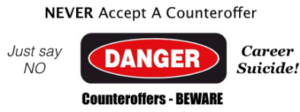
A counteroffer is an offer made in response to another offer for a candidate seeking multiple a career change.

Leaving an employer or company can often be a significant decision. It can take more time to finally commit to actively seeking alternative employment, especially if you are parting ways with a firm you are or were once fond of. Whether you have hit a career hindrance or there is a change in strategy, which you don’t agree with, then there is a tendency to look at the situation with the anticipation that things will improve in the future.
When an appropriate opportunity arrives, it gets followed by mixed emotions. The initial happiness often sinks and is replaced by a nagging doubt about whether you are making the correct decision. This feeling can intensify further when you put in your resignation and your current employer propositions you with a counteroffer. It can be both flattering and tempting, but here are a few reasons why it is better to think a lot of time about accepting such a proposal.

Reasons to think before accepting a counteroffer
- Money isn’t everything
Working with a firm offer you more money may be flattering, and it may seem like a safe option. But the happiness connected with a pay raise will fade eventually. So, you need to ask yourself what were the reasons you wanted to leave in the first place in the long commute. Whatever else was creating a shadow on your happiness will still be there even though you are receiving a few more pennies in your pocket.
Of course, your current company may have offered you more than just a bump in salaries. They may have offered you a promotion or a change in departments. Eventually, with a new package, you need to weigh up the reasons you wanted to move in the first place with how the counteroffer will resolve many of the problems. If the latter is lesser than the former, then moving on will be the smarter alternative.
- Regrets, I’ve had a few.
When people retire to their death bed, they tend to regret the things they didn’t do rather than the things they did do. If you stay with your current organisation, there will always be the nagging sensation in the back of your mind of ‘what if’. As a human being, we tend to play it safe and err on the side of caution, but eventually, we find making advances and push ourselves much more rewarding.
Plus, do you really want to serve for a firm who doesn’t pay their staff appropriately until they get backed into a corner? If they valued their team and tried to retain them, you would have already been on the payroll they are offering.
- Burning bridges
Most people look after number one. Very few people would turn down a counteroffer just because it may upset the company offering the new Job opportunity or the recruitment consultant who worked hard to help them in landing it. But if the position you are turning down is with a firm you would like to work for in the near future then be careful not to burn bridges.
People will understand if it is a too excellent opportunity to turn down. But if you have been playing with them and your plans were always to stay with your current company if they made you a more fabulous offer, or you choose to stay for very little improvement, then they may not look quite as understanding. And the next time when you apply for a job role, you may not get your foot in the door.
If you have received a very attractive counteroffer, then talk things through with your recruiter and with the people around you, including family and friends. They understand the reasons why you were considering moving on from your present role or company in the first place. You might gain a clearer idea of what you really want from your next position, and you will probably feel more assured about your worth in today’s job market.

Call us at # +91 7795547089 or mail us at team@bssrecruit.com to have a better counteroffer in your career.

Top strategies to keep your teamwork towards the same goal
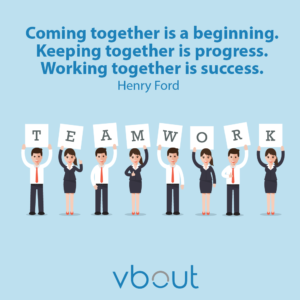
Teamwork is the propelling agent for any concern to accelerate in productively towards the set goals and target vision in the company.
A rowing team that is off rhythm will go in a different direction and never reach its destination. So, for being an efficient team, all members must row in perfect sync with one another, moving the boat in the same direction.
The same rule applies to your organisation. Leaders need to inspire their employees. They need to take tangible steps to let everyone on the team to feel a part of this shared vision, goal, and to push it forward as a group.
Nothing about this process can be abstract. Communication is one of the keys to identify what team members want personally as well as share what the organisation as a whole is working toward. Often business leaders set goals that never get achieved because the company’s team members do not line up to work towards the same goals.
Teamwork Alignment is the first key to a company’s success. Without it, your business will hold back from growing and reaching its full potentials. To seamlessly instil alignment into your organization, make sure that your company operates according to the following characteristics.
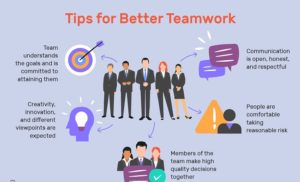
 How to seamlessly instal teamwork alignment into your organisation
How to seamlessly instal teamwork alignment into your organisation
- Visibility.
A business firm must have clear core values, core purpose and goals to get success in the long run. A strategic plan sketching these areas of the business should display in a central location that is accessible to everyone in the company.
In addition, individual progress towards goals should be visible to everyone in the firm. It distinctly reveals what is and what is not on track, making it effortless for business leaders to pinpoint sections that need more consideration. Plus, having this information public also promotes accountability among team members.
- Accountability.
Responsibility drives businesses. Build a work environment of accountability and follow-through. To create a system of accountability, at first, you must give your team members the ownership of the organization’s goals. It provides them pride in knowing they are making a greater impact on the success of the company. Implement a reporting system to measure the performance and results of the employees. When team members are excelling, recognise them to increase motivation. You can provide feedback on their day to day tasks and help them get back on track.
If you do correctly, accountability will allow leaders to determine whether the organisation is on the right course, whether they have the right employees in the right places and whether they are reaching the goals of the company.
- Transparency.
Effective communication within a firm is crucial for achieving alignment. Encourage a culture of openness and collaboration to build trust. When business firms transparently and honestly share information, it keeps employees connected to the big picture.
Most employees need to feel as if they are working toward concrete, lasting and essential goals rather than just cranking out a series of repetitive tasks. A combination of these three qualities will help you accomplish teamwork alignment in your organisation.
When people can gather around a common dream, reaching for a summit that’s consistent with their values, they’ll sacrifice together, lift each other’s burdens, and do their utmost not to let each other down.
Productive team members work collectively through communication, alignment, and trust. They leverage the power of the collectiveness to be higher than the sum of their parts. These strategies are not just for the birds. So the next time when your team members get stuck, take a lesson from the experts in flight and create teamwork alignment for the long-term success.
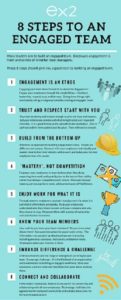
Do call us at # +91 7795547089 or email us at team@bssrecruit.com for a better workforce in your organisation.

What are the common employee relations issues and how to handle them?
What are the common employee relations issues and how to handle them?
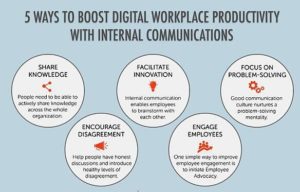
If you are an HR manager or a business owner, you know that maintaining good employee relations is essential to the success of your organisation. However, you probably also know that many issues can come up in the workspace. These problems can easily snowball into much larger issues.
Every employer wants to have a safe and secure workspace that promotes communication and has a supportive culture. When you understand what common issues are, you can have a plan. That plan is the solution to maintaining a happy workspace that runs efficiently.
Common employee relations issues between employees crop up again and again. It holds true for large and small businesses equally. The following issues are not the only ones you will see, and you will undoubtedly deal with others. These are the most common issues and a few tips on how to handle them.

Top Employee Relations Issues
- Conflict Management
Conflict can happen in anywhere, and the workplace is undoubtedly no different. Disputes between co-workers or a direct disagreement between an employee and an employer are situations that can occur often. An effective way of managing this dispute is vital to the continued health of your firm.
One of the greatest concerns is how the two people talk to each other or whether they talk at all. If no easy way is there for both parties to interact and have their issues heard, the dispute can turn into something much worse. It can result in poor morale of the company or the termination of a team member.
Consider using a system to let consistent and efficient communication between team members. Insist on your team that this is the right way they must interact if a conflict occurs. When you make this a policy in your firm, you can sidestep gossip and misunderstandings. You can also make sure that employees always feel that their queries got heard.
- The hour and Wage Issues
Do you find that problems often crop up around payday? Employees tend to argue the number of hours they worked or insist on overtime that you don’t think is right? Do you or your HR find that you have to go over timesheets or attendance records to check the details?
To evade federal wage and hour violations and to overcome the possibility that employees will argue their paychecks, consider self-service timekeeping software that let them to clock in and out from their smart devices. It encourages employees to keep track of and maintain their own schedules by providing an adequate way to do so. It can also assist with scheduling to prevent unnecessary overtime or to ensure the employees in the right pay grade perform the right jobs.
- Adequate Safety in the Workspace
It’s every employer’s worst nightmare to have an accident or injury happen to anyone of their employees while they are in the office. Promoting safety in the workspace should be a top priority of every business owner. It should be true no matter what industry they are in. It includes making sure to use all proper safety equipment and put the right security measures in place.
A good policy should also make sure that employees are not overly fatigued due to too multiple overtime shifts. Having software to trace schedules can help HR managers to make sure that employees have plenty of rest time. It helps reduce over-scheduling to the point of making unsafe work surroundings.
- Annual Leave Disputes
Do your employees know what the organisations’ leave policy is? Are you sure your policy is following state and federal laws? If your reply is no to either of these queries and you are not currently using any leave management software, then you could open the door to annual leave disputes.
Consider leave management software that helps you build a legal and transparent leave policy that leaves no room for argument. Allow every employee to access this policy easily. This type of software can also assist your employees in talking with HR managers about leave requests and adjustments.
- Timekeeping and Attendance Issues
Do you need your employees to come into the office and clock in or out every day? Do you discover that many of them become careless on the issue, or that they have their colleagues ‘buddy punch’ them in when they are running late?
Timekeeping and attendance problems are common, and you can alleviate many of them by using employee self-service software. Allowing your employees to keep a record of their time and converse about attendance issues right from their smart devices minimises the chances for conflict and provides them with a handy benefit.
Having an efficient employee relations plan in place will help you in various ways. You can evade federal wage and hour violations, encourage safety in the workspace, assist with schedule management, and give team members a comfortable way to communicate. It is an excellent way to ensure you promote an efficient and engaging work environment for your employees.

Candidates seeking a Job can send their resumes at team@bssrecruit.com or can call us at Phone: +91 7795547089
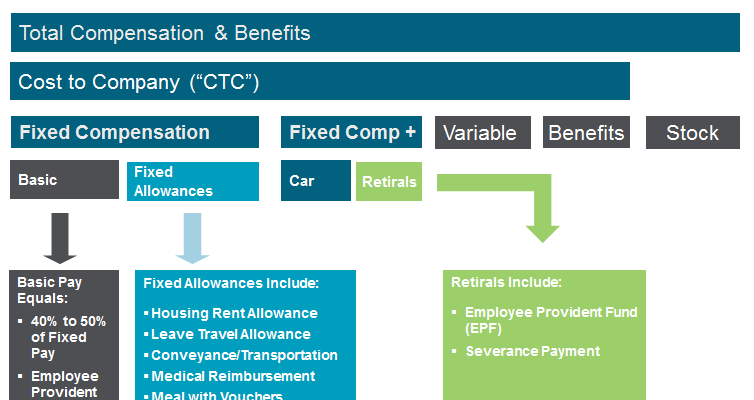
How to get the best salary and benefits?
The best salary and benefits form an employer is given only to outstanding and hard-working employees in a company.
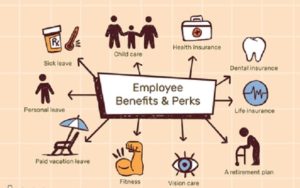
“Appraisals are where you get together with your team leader and agree what an outstanding member of the team you are, how much your contribution has been valued, what massive potential you have and, in recognition of all this, would you mind having your salary halved.”
— Theodore Roosevelt
Salary is a sign of the price of the services you offer to your company as an employee. Most employees rarely work in one firm their entire career. They need to think of themselves as independent business owners to get fair salaries. Your main goal as an employee should be working with your organisation as opposed to working for your company.
It requires you to have a clear view of what your contribution is to the firm and how this contribution adds value. This article is an ideal option for those who want to learn how to get the best salary and benefits. Below we will have a more in-depth discussion on how to do this.
There is absolutely no problem with feeling of uneasy about salary and benefits negotiations, especially if you recently joined the process. The first thing you should consider is doing quick research at glassdoor.com, payscale.com, or salary.com, among other sites to estimate your salary range analysing the factors like your job description, region, experience etc. The salary range should include the following;
“Good jobs were the one with a good salary, perks, etc. Now, it’s one that prepares you for your next job in another company.”
— Sriram Ramani
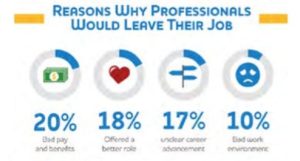
How to analyse your best salary and benefits range?
- Your Walkaway rate
Walkaway rate is the lowest pay you can accept doing a specific job. The rate should be enough to cover your monthly expenses entirely.
In summary, you shouldn’t force yourself to take another job to meet your bills. It is highly better to avoid jobs that pay less than your walkaway rate for obvious reasons. To get the best salary and benefits, you should commit to receiving your walkaway rate for a minimum of 2 years.
- Your Ideal rate
As the name hints, it is the amount of payment you expect to make doing a specific job. This amount is ideally many times more than the walkaway rate. Even after fixing your ideal rate, your work hasn’t completed. You must go a step ahead and pitch your ideal rate properly to make it clear to your boss that you care more about your work than the money you are getting. Considering this approach will give you more power to bargain.
You should also be open to other elements of your boss’s offer that compensate for less money. Of course, this applies when your Walkaway rate is intact. When you begin salary and benefits negotiations, you need to make it clear that your duty motivates you as opposed to the payment you get carrying out your duty. You should also request on knowing more about your job role as well as other perks before you make any final decisions.
Contrary to popular belief, potential employers don’t always offer the lowest rates to prospective employees. So, if you happen to be overwhelmed by their offer, they most probably envision your valuable contribution to their firm. An exciting offer may also indicate that it will take them a lot of precious time to get someone with a similar skill-set. Thus, they prefer to close the deal soon with a reasonable offer.
At this stage, you should have a broad salary range. Your focus should then turn to show your potential employer why you deserve a specific salary. You can do this adequately by giving practical examples of how you will add priceless value to the organisation. In case, if you are unhappy with the initial offer, you can talk to your boss about how exciting it is to get this offer but mention the requirement of getting more out of the deal about salary or any other benefits.
At this point, it is inevitable to add specific parameters to the initial offer. For instance, you can declare that you would prefer x amount if it is possible for them to revise the offer. It is crucial to note that there is nothing incorrect with asking for more.
If it is also worth noting that organisations won’t dig deeper to pay their workers better if they don’t view it as an excellent deal from their end. It explains the significance of stating that you will exceed the expectations of your employer. If you tactfully ask for a more excellent deal, you might very well get settled with one even if you say no. Potential employers more often will not give you a better offer if your counter offer was fair.
Although the above information may seem too much to digest at a glance. But following the above steps will most likely result in the best salary and benefits deal for you.
“Let us never negotiate out of fear. But let us never fear to negotiate.”
— John F. Kennedy

Do mail us your resumes at team@bssrecruit.com or call us at +91 7795547089

Why do you want to join our organisation? – The best guide that makes you prepare on how to respond to this Interview question.
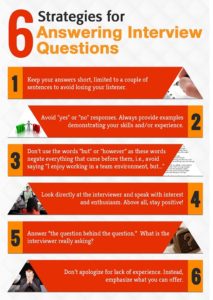
‘Why do you want to join our firm’ is one of the most frequent questions every job seeker will encounter during the interview question. Answering this common and open-ended in the best way question can make you stand out from others. Vague answers such as looking for ‘better career opportunities’ or ‘less travel’ will not take you so far.
It is incredibly challenging to answer the query; we know that. But, with a little forethought, your answer will help establish your credibility and convince the recruiter to like you. This article will outline how to prepare your answer for similar versions of questions.
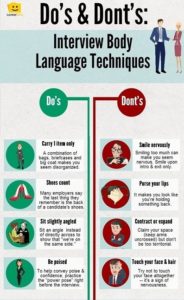
How to create a response that can convince the interviewer to hire you during the interview question
There isn’t any particular answer to this query that can convince an interviewer to pick you to fill the vacant chair. But you can employ certain strategies to prepare a response that fits your circumstances. They are –
- Focus on the cultural fit.
Think about what you have observed so far about the atmosphere of the company.
- Did you pick up on any cues during your interactions with other employees at the office?
- Is the office pin-drop silent, or have you heard the employees collaborating and communicating freely?
What have you learned about the various policies of the firm that shed light on their culture? For example,
- Do they have a charity task force?
- Do they have a flat organization that encourages everyone to contribute ideas and limits bureaucracy?
Pointing these qualities in your response adds a personal feel to the interview.
- Highlight a company’s reputation as an employer.
Learning about the company’s reputation within the industry will be a great idea. For example, if you talk to current staff about the training they have received during their employment, you could reference this during the interview. You can also talk about the interactions with the product or service of the organisation.
- What are the products or services the employer offer?
- If you are not already a consumer, sign up for a trial period or test out an item from their catalogue.
- If you enjoy the experience, consider including that feedback into your interview responses
It will be a useful point for explaining why you want to work with the company, and the recruiter will be impressed by your initiative.
- Position your candidacy within the context of the firm’s objectives.
Review the online presence of the employer, including their website, social media pages, and news coverage. Look for new product launches and signs of the organisation’s plans for future growth. If any of these initiatives seem related to your area of expertise, raise the issue during the Interview question and explain to the recruiter about how you will support those objectives.
Along with all the other responses, you also should establish an emotional connection by expressing how much you have enjoyed learning about the company.
- Be specific.
Most of the hiring managers like to see that a candidate has spent time researching the company and preparing for an interview question. It shows that you are interested in the position and have already identified concrete ways that you can contribute to the organisation.
Don’t read your responses off the page, during the interview. Instead, focus on key talking points. Keep your answers organised and intentional but unscripted. Feel free to refer notes if that will make you more comfortable. But make sure you look up to meet the interviewer’s gaze and try not to look too stiff.
- Steer the conversation toward a shared future.
Spend an equal amount of time talking and listening for the duration of the interview question, and incorporate the information you learn into your responses. As you set the scene, keep the tone positive; spend as little time as possible discussing what you don’t like about your current or previous role.
You don’t want to project negativity or resentment, because this can seem like a red flag. If an employer asks a follow-up question about what prompted you to look for another job, try to frame your answer so that it reinforces what you like about the interviewer and their company.
In a similar vein, you also want to avoid making your response too personal. There might be circumstances in your personal life that make it imperative for you to find a new job—for example, an expected layoff or income gap. No matter how pressing, don’t discuss these problems with a potential employer.
If you respect the professional boundaries of a job interview, employers will be more interested in working with you.
- Show them your personality.
Choose one of these approaches that truly reflects how you feel about an opportunity. Your response needs to be warm and unreserved. Even though you might be nervous during the job interview, don’t fall into the trap of sounding too rehearsed or emotionally removed.
Answering this question doesn’t have to be about what differentiates you from other candidates based on skill but about showing the hiring manager what matters to you. If you answer this question effectively and efficiently, it will help to make the experience positive and memorable.
In the end, your response to this question should speak to what resonates with you about the employer. So be honest and focus on the real, human connection you have with the interviewer.
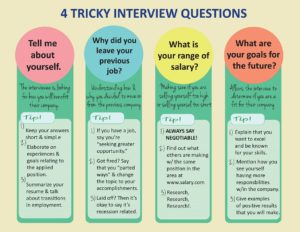
End of content
No more pages to load




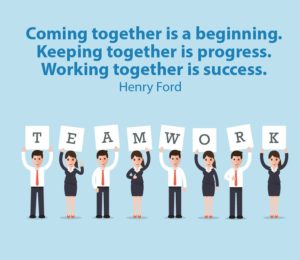 How to seamlessly instal teamwork alignment into your organisation
How to seamlessly instal teamwork alignment into your organisation